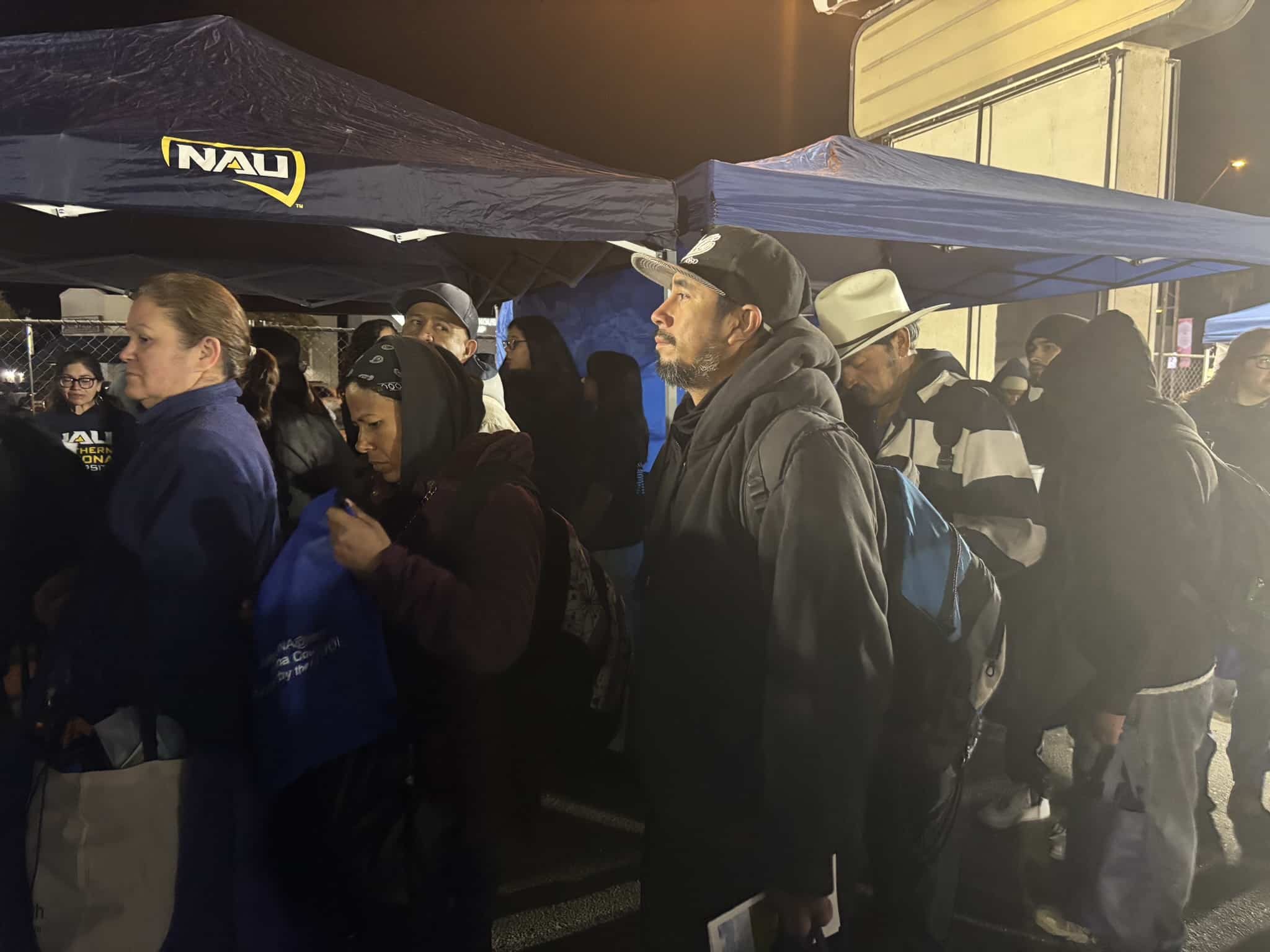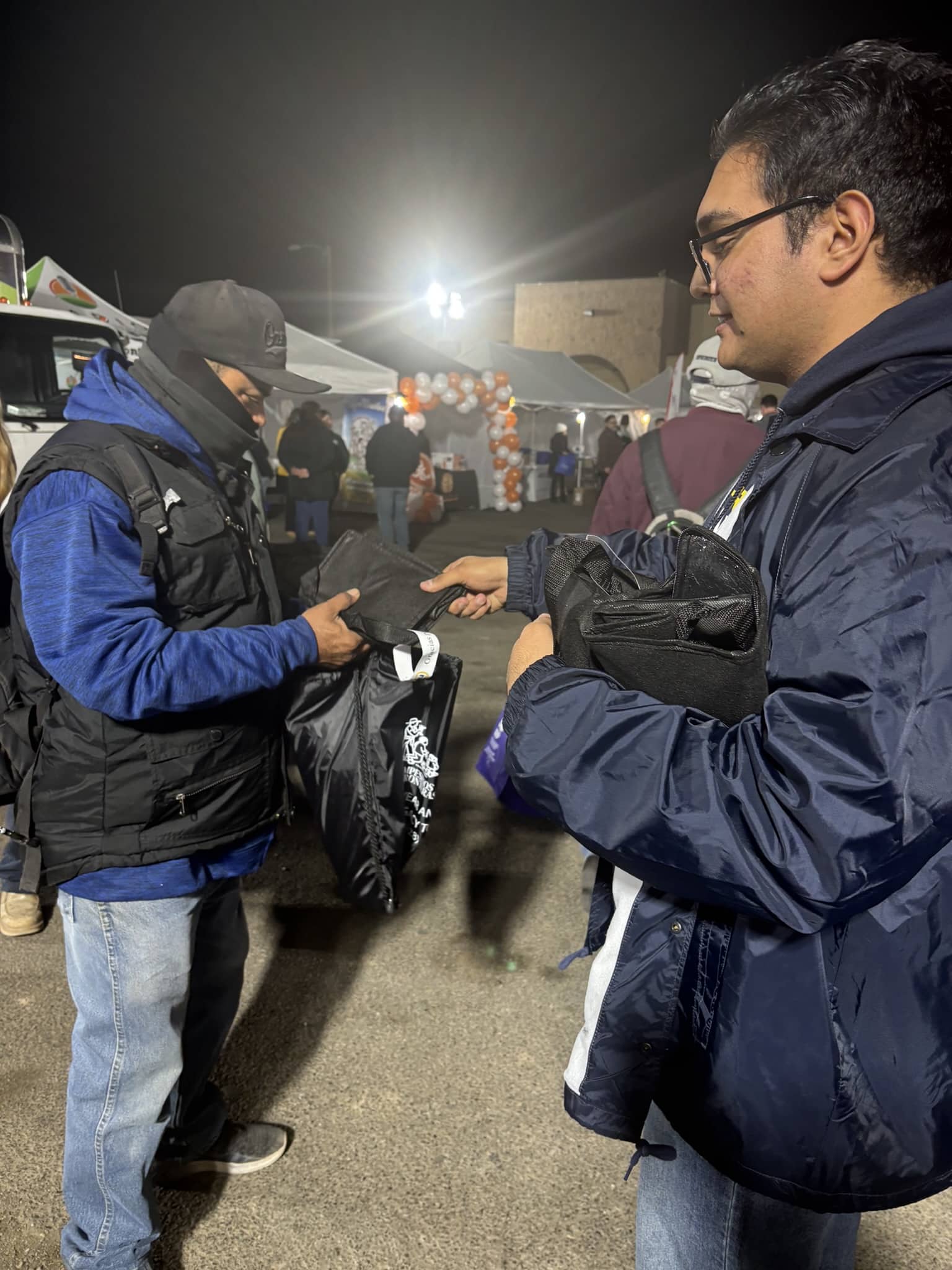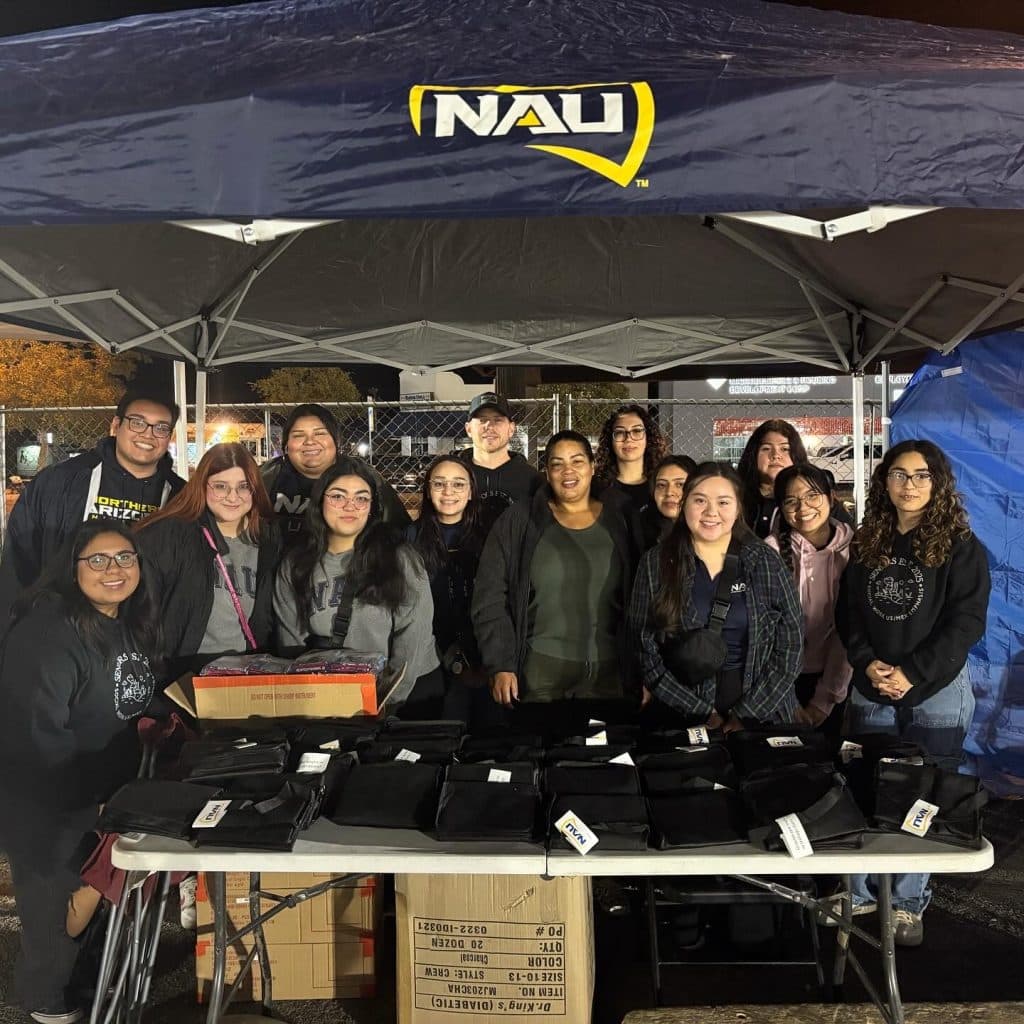In the middle of cold winter nights, farmworkers from Mexico cross the border and travel by bus to harvest crops in Yuma, Arizona. Each year, NAU-Yuma social work students get up just as early to show support and appreciation for the workers with the Dia del Campesino, or Day of the Farmworker, health and resource fair.

“Farmworkers are responsible for producing over 90 percent of the nation’s lettuce from our geographical region during winter months,” said Kara Ahearn, an assistant clinical professor for the Department of Social Work at NAU-Yuma. “However, they remain invisible. They work long hours, often without the appropriate equipment and comfort items needed to maintain their health and safety, and they are very vulnerable to exploitation.”
This year, more than 20 social work students participated in the event. The group collected donations from local businesses, a GoFundMe account and a raffle. They used the funds to buy insulated lunch bags, sunscreen, ibuprofen packets, bandanas and beanies to give to the farmworkers, along with information on health and wellness resources.

People dressed in holiday costumes and attire also danced to traditional Mexican music.
“It felt welcoming,” said participating NAU-Yuma student Anthony Crocker. “There was a definite sense of belonging.”
NAU-Yuma students gathered hands-on experience in micro- and macro-level social work by meeting their clients where they were and providing essential items to improve their quality of life, Ahearn said. She’s incredibly proud of her students and the ways the event highlights a need for improved working conditions on a grander scale.
“This population is near and dear to our students,” Ahearn said. “Many of their parents and grandparents worked in the fields so these students could have educational opportunities. It’s a full-circle moment for many of them. Our program has an emphasis on issues related to the U.S.-Mexico border. This is one of the many ways we collaborate with our community to meet that mission.”



